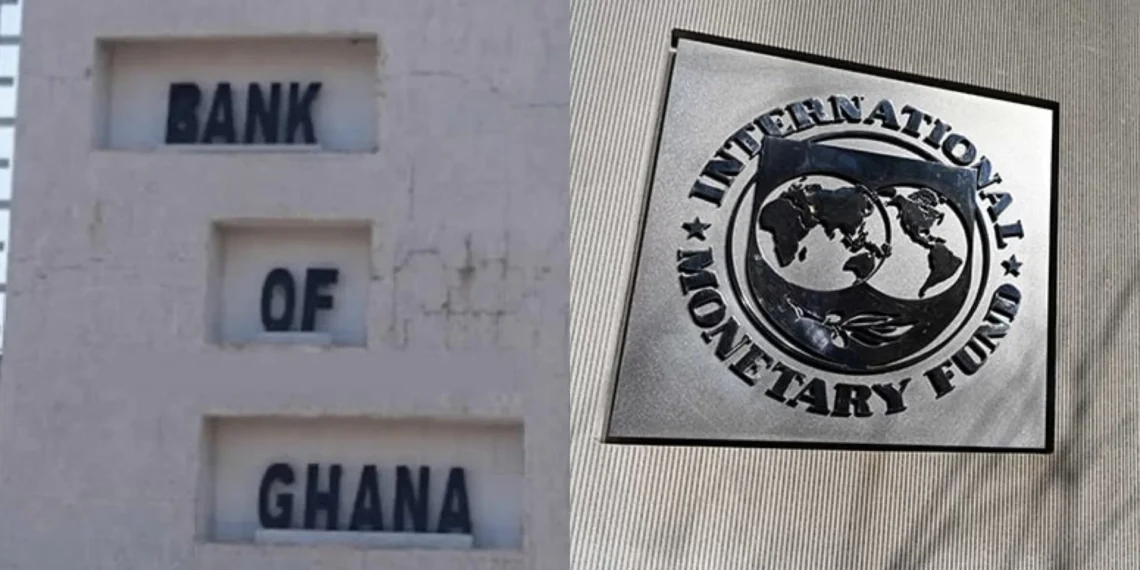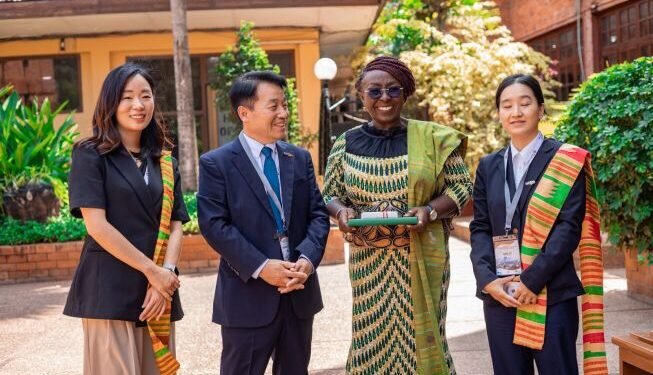As Ghana continues its steady march toward macroeconomic stability, the International Monetary Fund (IMF) has urged the Bank of Ghana (BoG) to maintain its current tight monetary policy stance to consolidate the country’s recent success in reducing inflation.
This recommendation comes amid increasing public and private sector calls for interest rate cuts to stimulate economic activity.
IMF Communications Director, Julie Kozack, praised the West African country for the significant strides it has made in controlling inflation. Ghana’s headline inflation, which soared to a staggering 54 percent in December 2022, has plummeted to 13.7 percent by June 2025—a trend that reflects six consecutive months of disinflation.
“Ghana has made good progress since the beginning of the program in reducing inflation. Inflation was extremely high at the end of 2022 at 54%. It has now come down substantially to 14% at end June 2025.”
Julie Kozack
This dramatic improvement is widely attributed to the aggressive monetary tightening undertaken by the BoG, which has kept its policy rate at a record 28 percent since earlier in the year. However, as inflation eases, calls from businesses and market analysts for rate reductions have grown louder, arguing that lower rates would support credit growth and economic expansion.
A Call for Caution Amid Optimism
Despite the progress, Kozack emphasized that the inflation battle is not yet over. She noted that maintaining a tight monetary policy is crucial in achieving the BoG’s medium-term inflation target.
“Going forward, it will be important for monetary policy to remain sufficiently tight, consistent with bringing inflation down to the Bank of Ghana’s target range of 8 percent, plus or minus 2 percentage points.”
Julie Kozack
The IMF’s recommendation suggests that easing rates too soon could risk reigniting inflationary pressures, especially given Ghana’s still-vulnerable macroeconomic environment. The country’s inflation target range of 6% to 10% remains a critical anchor for policy credibility and investor confidence.
125th MPC Meeting Underway
The IMF’s comments come as the Bank of Ghana kicks off its 125th Monetary Policy Committee (MPC) meeting today, Monday, July 28, 2025. The three-day session is expected to assess the current macroeconomic landscape, including inflation trends, exchange rate movements, and the stability of the financial sector.
This meeting is particularly crucial, as it will determine whether the central bank will heed public pressure to lower rates or follow the IMF’s advice to stay the course.
Market watchers will be keenly observing the MPC’s communique at the end of the week, especially in the context of ongoing IMF support and structural reforms.
Meanwhile, Ghana is currently undergoing a $3 billion IMF-supported Extended Credit Facility (ECF) programme. The facility, which began in 2023, is designed to help the country restore macroeconomic stability, ensure debt sustainability, and lay the groundwork for inclusive and resilient growth.
So far, the disinflation trend has become a key pillar of the IMF’s positive assessment of Ghana’s progress under the programme. The rapid decline in inflation has bolstered investor sentiment and improved consumer confidence, though challenges remain in the real sector.
According to the IMF, preserving this momentum will require sustained commitment to sound fiscal and monetary policies, even in the face of political and economic pressures.
While many businesses hope for a break from high interest rates, the IMF cautionary stance. The central bank must weigh the benefits of supporting growth through lower rates against the risks of undermining its hard-won gains in inflation control.
In the coming days, the outcome of the MPC meeting will serve as a critical signal to markets and development partners about Ghana’s policy direction.























